Best Tokenization Platforms For 2025



Editorial Note: While we adhere to strict Editorial Integrity, this post may contain references to products from our partners. Here's an explanation for How We Make Money. None of the data and information on this webpage constitutes investment advice according to our Disclaimer.
Best tokenization platforms in 2025 are:
BinaryX: tokenized over 500 assets for 50,000+ users, ideal for small and medium businesses, as well as individual investors.
Republic: raised over $1.5 billion for 300+ companies, with a community of 100,000+ active investors, making it perfect for businesses and investors of all sizes.
Harbor: specializing in real estate tokenization, Harbor simplifies the process of issuing and managing digital assets.
tZERO: this platform offers a regulated exchange for trading security tokens, providing liquidity and transparency.
Arrived: tokenized 50+ rental homes with 500+ investors earning passive income from rental properties.
Tokenization is reshaping the financial world by increasing liquidity, enabling fractional ownership, and enhancing transparency. As we move towards a more digital economy, the ability to tokenize assets allows for more fluid, 24/7 trading, reduced transaction costs, and greater accessibility. In fact, a study by the World Economic Forum predicts that by 2027, 10% of the world's GDP will be stored on blockchain technology, much of it through tokenized assets. With so much growth centered around this concept, a deeper understanding of it can place you ahead in the investment race. So let’s look at the top platforms offering this feature and how they compare against each other.
Best tokenization platforms in 2025
Tokenization is the process of converting rights to an asset into a digital token on a blockchain. This could be anything from real estate and art to stocks and intellectual property. By tokenizing assets, ownership becomes more fluid, accessible, and secure. Imagine owning a fraction of a Picasso or a slice of a commercial building in Manhattan. Tokenization makes this possible, democratizing access to investments that were once reserved for the wealthy.
BinaryX
BinaryX is ideal for individuals, small businesses, and medium-sized enterprises looking to tokenize assets without being bogged down by complexity. The platform focuses on ease of use, offering straightforward tokenization tools. To date, BinaryX has supported the tokenization of over 500 assets, helping more than 50,000 users create digital tokens for various asset types.
Why choose BinaryX?
BinaryX is perfect for users who want to get into the tokenization space without high overhead costs. The platform’s streamlined interface and lower fees make it a great option for small-scale investors and businesses.
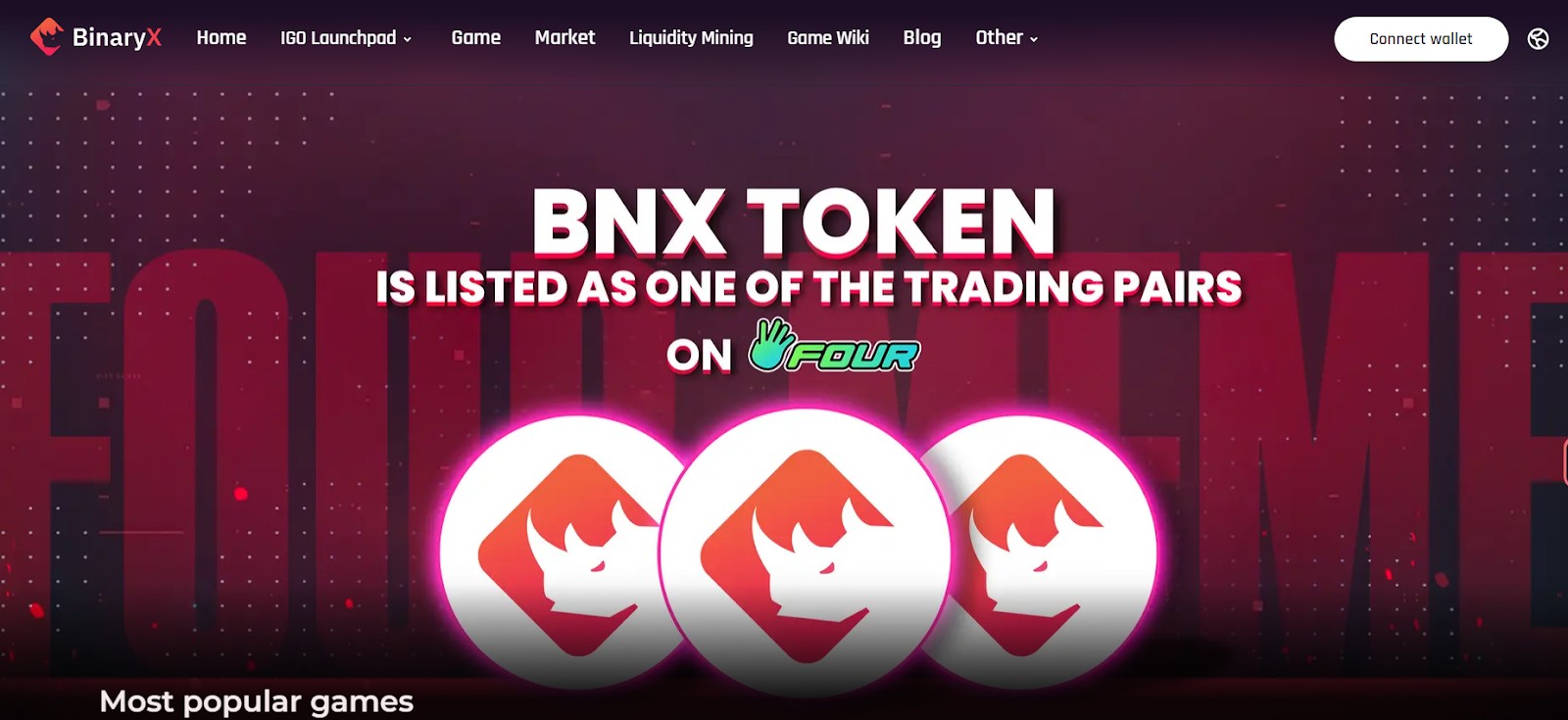
Republic
Republic offers tokenization solutions suitable for companies and investors of all experience levels and sizes. It has helped companies raise over $1.5 billion through more than 300 successful projects, supported by a community of over 100,000 active investors. Whether you’re a startup looking to raise capital or an institutional investor seeking access to new assets, Republic provides a robust platform for tokenization, equity crowdfunding, and real estate investments.
Why choose the Republic?
Republic’s versatility, combined with its large investor base, makes it suitable for businesses of any size. With strong regulatory compliance and diverse asset offerings, Republic is a leader in the tokenization space.
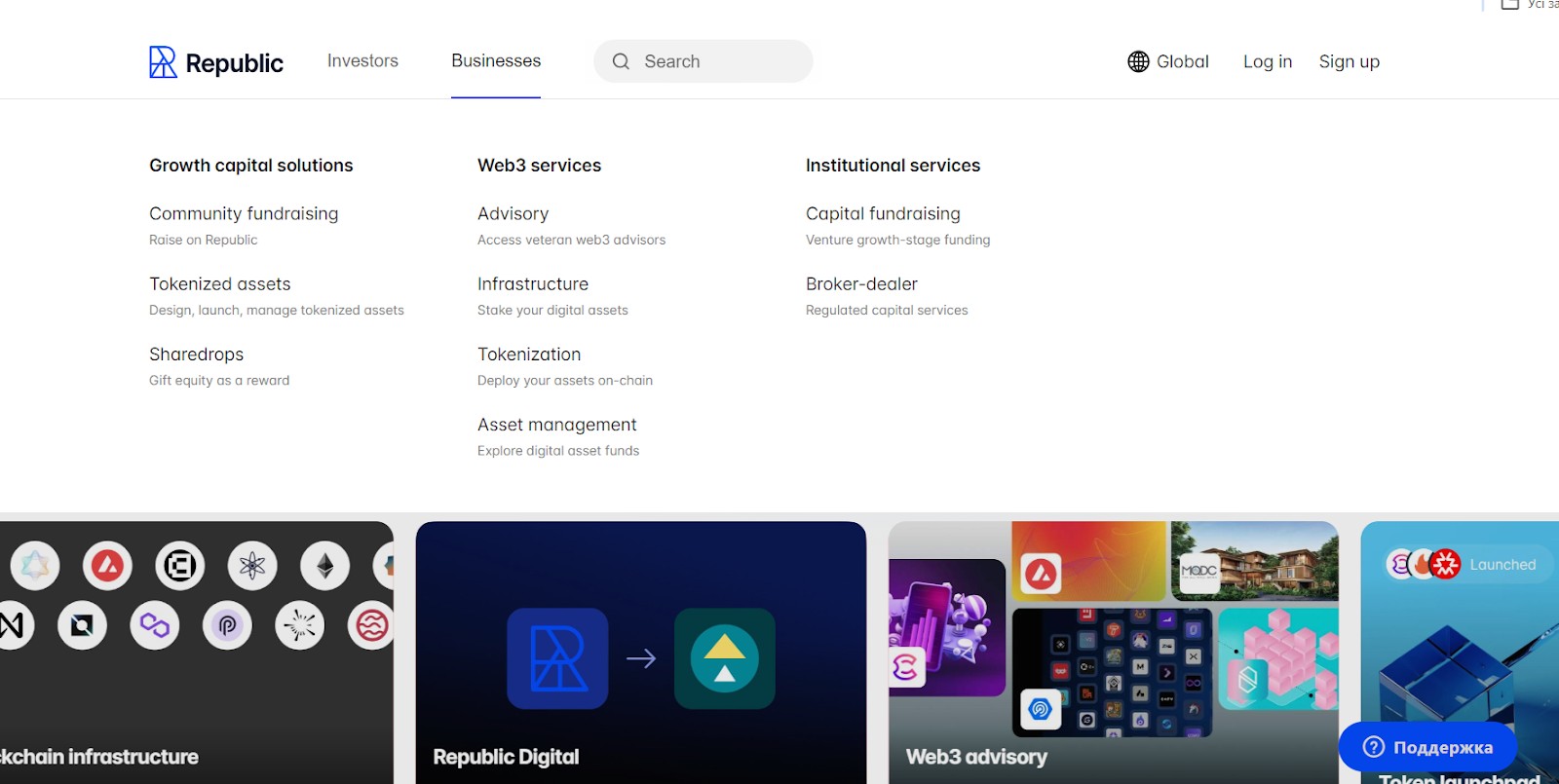
Harbor
Harbor has successfully tokenized over $100 million in real estate assets since its launch. The platform’s focus on real estate tokenization has attracted property developers and investors looking to leverage blockchain technology to unlock liquidity in traditionally illiquid assets. Harbor simplifies the tokenization process, allowing developers to divide assets into smaller, tradable tokens, which makes high-value properties accessible to a broader audience of investors.
Harbor is built around compliance, integrating U.S. regulations such as Reg D and Reg A+. The platform provides a simple interface for investors to manage tokenized real estate holdings, making it easier for them to receive dividends, trade tokens, and track performance.
Why choose Harbor?
With a clear focus on the real estate sector and an established reputation for tokenizing high-value properties, Harbor provides a seamless experience for both issuers and investors interested in real estate-backed tokens.
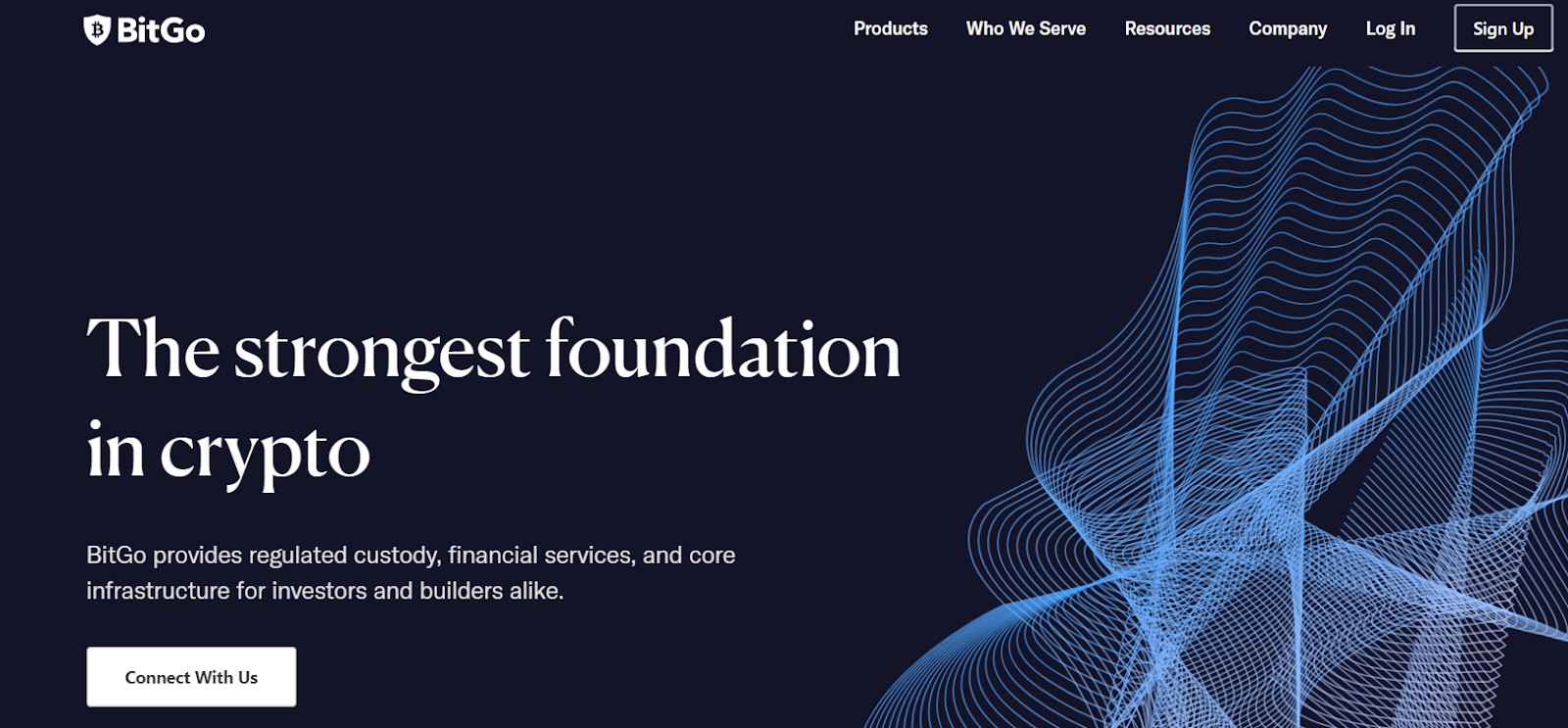
tZERO
tZERO is one of the largest platforms in the security token space, supporting over $1 billion in tokenized assets. It offers a highly liquid marketplace for trading security tokens, making it a favorite among serious investors looking for transparency and regulated trading environments. With backing from Overstock’s Medici Ventures, tZERO has become a cornerstone in the digital securities ecosystem.
tZERO supports 24/7 trading of security tokens, enabling investors to buy and sell tokens in real-time, unlike traditional markets. The platform has onboarded thousands of accredited investors, providing them access to a diverse range of tokenized assets. The platform also boasts institutional-grade security, ensuring that all transactions are compliant and safeguarded from potential threats.
Why choose tZERO?
tZERO’s focus on liquidity, regulatory compliance, and it's fully regulated alternative trading system make it one of the best choices for serious investors who want a secure environment to trade security tokens with full transparency.
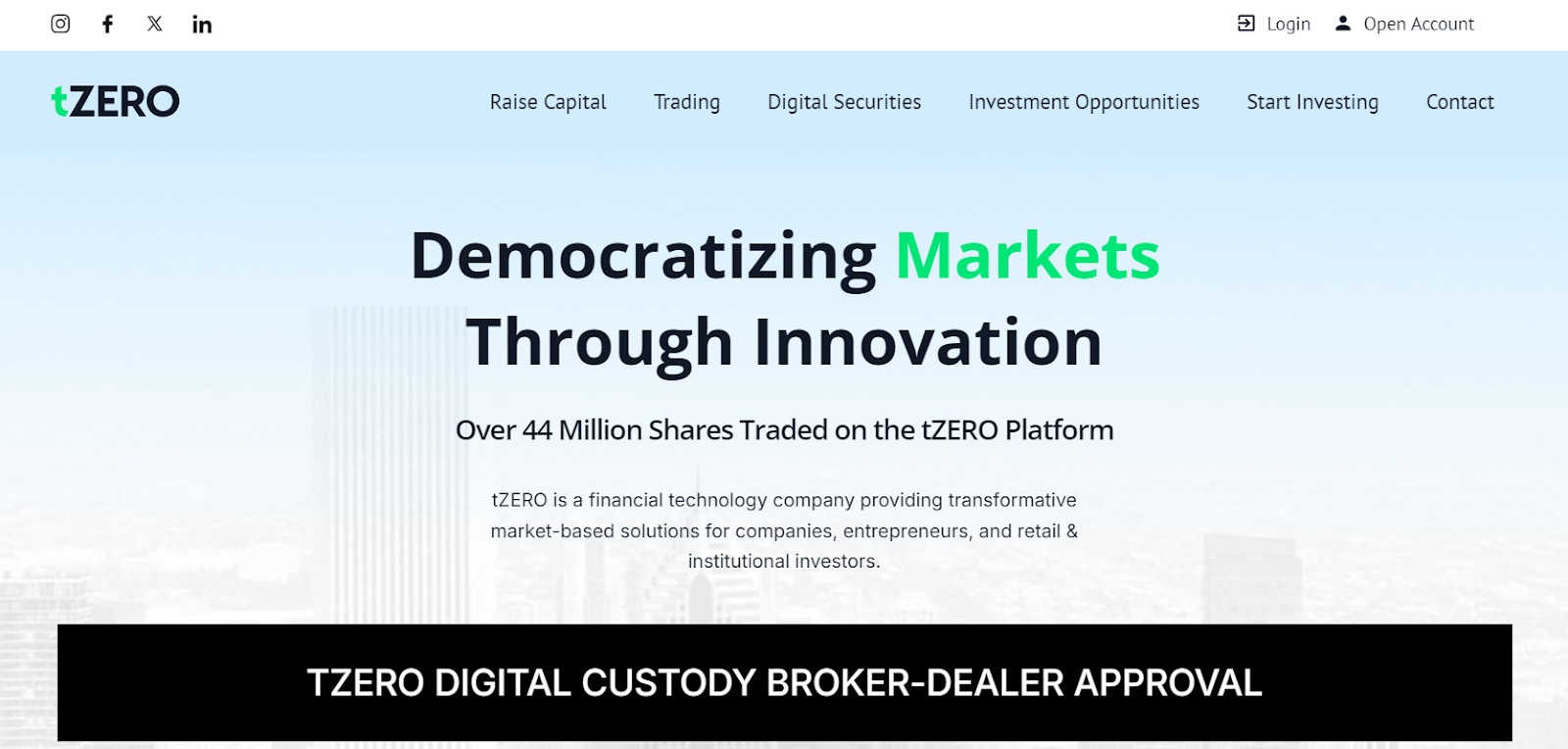
Arrived
Arrived focuses on tokenizing rental and vacation homes, offering fractional ownership opportunities to investors. The platform has tokenized over 50 rental homes, allowing 500+ investors to earn passive income from rental properties without the hassles of property management. Investors receive rental income and benefit from potential property value appreciation.
Why choose Arrived?
For those looking to invest in rental and vacation homes without the need to manage properties themselves, Arrived offers a hassle-free way to gain exposure to real estate markets.
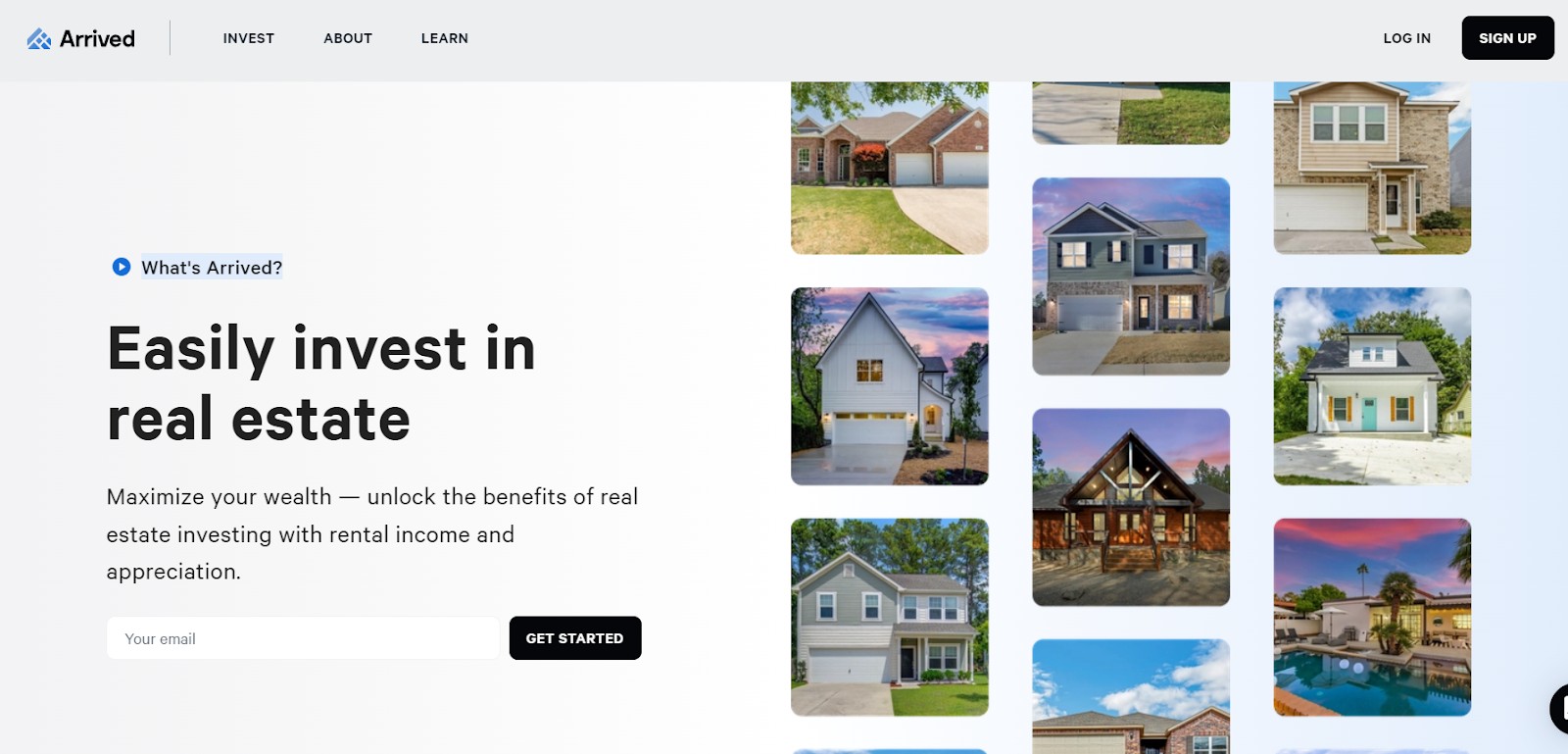
| Platform | Specialization | Key features | Ideal for | Compliance focus | Flexibility & customization |
|---|---|---|---|---|---|
| BinaryX | Small & Medium Businesses, Individual Investors | Easy-to-use tokenization tools, lower fees | Small/medium businesses, individuals | Moderate | High |
| Republic | Companies & Investors of All Sizes | Wide range of asset tokenization, equity, and real estate | Businesses and investors of all sizes | High | High |
| Harbor | Real Estate Tokenization | Real estate tokenization, regulatory compliance with U.S. laws | Real estate investors, builders | High | Moderate |
| tZERO | Regulated Security Token Exchange | Regulated trading, liquidity and transparency, integrated digital wallet | Serious investors | High | Moderate |
| Arrived | Rental & Vacation Homes | Fractional investments in rental and vacation homes, passive income | Real estate investors, vacation rental investors | Moderate | Moderate |
Step-by-step guide to choosing the right platform
Define your needs. Are you looking to tokenize real estate, art, or something else? Your asset type will guide your platform choice.
Research platform features. Dive deep into what each platform offers, focusing on security and compliance.
Compare costs and fees. Tokenization can come with various fees, so choose a platform that offers a good balance of cost and value.
Check platform reputation and reviews. Look for user reviews and third-party evaluations to gauge the platform’s reliability.
Test platform usability. If possible, try out a demo version to get a feel for the user interface and features.
Understanding asset tokenization
Asset tokenization involves creating digital tokens that represent ownership of a physical or digital asset. These tokens are then recorded on a blockchain, making ownership transparent, immutable, and easily transferable.
Types of assets you can tokenize:
Real estate. Tokenize residential or commercial properties for fractional ownership.
Art. Own a piece of a famous artwork without the need to buy the whole piece.
Commodities. Invest in tokenized gold, silver, or other commodities.
Intellectual property. Tokenize patents, trademarks, and copyrights.
How blockchain powers asset tokenization
Blockchain technology is the backbone of asset tokenization. It provides a decentralized ledger that ensures all transactions are transparent, secure, and immutable. This technology eliminates the need for intermediaries, reducing costs and increasing transaction speed.
The process of asset tokenization
Asset selection. Choose an asset to tokenize, whether it’s real estate, art, or intellectual property.
Platform selection. Choose a tokenization platform that fits your needs.
Token Creation. The platform will create digital tokens representing ownership of the asset.
Regulatory compliance. Ensure the tokens are issued in compliance with relevant regulations.
Distribution. The tokens are distributed to investors, who can trade them on secondary markets.
Pros and cons of tokenization
- Pros
- Cons
Liquidity. Tokenized assets can be traded 24/7 on global markets.
Transparency. Blockchain ensures all transactions are visible and cannot be manipulated.
Cost efficiency. Reduced need for intermediaries lowers transaction costs.
Accessibility. Fractional ownership opens up investments to a wider audience.
Regulatory challenges. The evolving regulatory landscape can pose risks.
Security risks. Cyber threats and smart contract vulnerabilities are concerns.
Market immaturity. As a relatively new market, tokenization is still developing.
Risks and warnings
Market volatility. Tokenized assets can be highly volatile, especially in nascent markets. Prices can fluctuate significantly, and investors should be prepared for potential losses.
Regulatory uncertainty. The regulatory landscape for tokenization is still evolving. Changes in laws and regulations can impact the legality and profitability of tokenized assets.
Custodial risks. If a platform fails or is compromised, there’s a risk of losing your tokenized assets. Choose platforms with strong custodial solutions to mitigate this risk.
Security threats (Cyber Attacks, Smart Contract Bugs). Cybersecurity threats, such as hacks and smart contract bugs, can compromise your investments. Ensure the platform you choose has robust security measures in place.
Illiquidity and exit risks. While tokenization increases liquidity, there’s still a risk of illiquidity in certain markets. Be cautious of assets that may be difficult to sell, especially in a downturn.
Never rush into anything
When I first started, the idea of owning a fraction of a high-value asset like real estate or fine art was almost impossible for most traders. But with tokenization, the barriers that once kept many investors out of these markets are disappearing. That said, while the opportunities are exciting, it’s important to approach them with the right mindset.
My first piece of advice is to never rush into anything. The promise of high returns can be tempting, but tokenization is still an emerging field with its own risks and complexities. Take the time to do your homework. Understand the assets you’re tokenizing, and don’t just rely on the buzz around a particular platform or asset class. Research the platform’s reputation, security measures, and regulatory compliance. These factors are your safety net in a market that’s still finding its footing.
Also, remember that patience is a key. Just like with any investment, the benefits of tokenization won’t materialize overnight. Markets need time to mature, and assets need time to appreciate. If you’re in this for the long haul, the rewards can be significant. But if you’re looking for a quick win, you might be setting yourself up for disappointment.
Conclusion
Tokenization is not just a trend; it’s a revolution in the way we think about ownership and investment. By choosing the right platforms, understanding the risks, and leveraging expert advice, you can navigate this emerging market with confidence. As we move towards a more digital economy, tokenization will undoubtedly play a central role in shaping the future of finance.
FAQs
I want to sell my tokenized real estate, how do I find buyers?
Use the secondary market on your tokenization platform or leverage real estate token marketplaces. Promoting your asset through real estate and blockchain communities can also help.
Can I use multiple tokenization platforms for different assets?
Yes, you can use different platforms for various assets. However, managing multiple platforms might require more effort in terms of compliance, security, and monitoring.
Can I convert my tokenized assets back into physical assets?
Yes, but the process depends on the platform and the type of asset. Some platforms offer redemption features, allowing you to convert tokens back into physical assets, but this must comply with the platform's rules and local regulations.
I’m concerned about taxes on tokenized assets, how should I handle them?
Tokenized assets are subject to tax regulations similar to physical assets. It’s important to consult with a tax professional to understand the implications in your jurisdiction, including capital gains and income tax liabilities.
Related Articles
Team that worked on the article
Mikhail Vnuchkov joined Traders Union as an author in 2020. He began his professional career as a journalist-observer at a small online financial publication, where he covered global economic events and discussed their impact on the segment of financial investment, including investor income. With five years of experience in finance, Mikhail joined Traders Union team, where he is in charge of forming the pool of latest news for traders, who trade stocks, cryptocurrencies, Forex instruments and fixed income.
Chinmay Soni is a financial analyst with more than 5 years of experience in working with stocks, Forex, derivatives, and other assets. As a founder of a boutique research firm and an active researcher, he covers various industries and fields, providing insights backed by statistical data. He is also an educator in the field of finance and technology.
As an author for Traders Union, he contributes his deep analytical insights on various topics, taking into account various aspects.
Mirjan Hipolito is a journalist and news editor at Traders Union. She is an expert crypto writer with five years of experience in the financial markets. Her specialties are daily market news, price predictions, and Initial Coin Offerings (ICO).
A trading system is a set of rules and algorithms that a trader uses to make trading decisions. It can be based on fundamental analysis, technical analysis, or a combination of both.
An investor is an individual, who invests money in an asset with the expectation that its value would appreciate in the future. The asset can be anything, including a bond, debenture, mutual fund, equity, gold, silver, exchange-traded funds (ETFs), and real-estate property.
Forex leverage is a tool enabling traders to control larger positions with a relatively small amount of capital, amplifying potential profits and losses based on the chosen leverage ratio.
Cryptocurrency is a type of digital or virtual currency that relies on cryptography for security. Unlike traditional currencies issued by governments (fiat currencies), cryptocurrencies operate on decentralized networks, typically based on blockchain technology.
A Security Token is one of the latest exchange instruments. It is a digital analog of physical securities (stocks, bonds), running on blockchain and representing a smart contract (as a non-fungible token).































































































































